The post Mindset Upgrade Unlocked: Keys to a Stronger Mental Game in Poker appeared first on Championnat-De-Poker.
]]>It may seem simple at first glance, but mastering the mental game of poker requires proper knowledge. To help you do that, we’ve compiled the keys to help your mind stay strong in various poker-related matters.
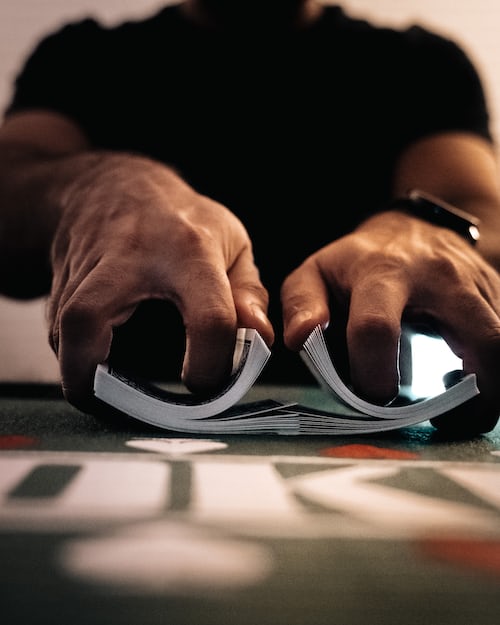
The Right Expectations
It can be very easy to get too caught up in the idea that you are going to win every hand or that you are going to make your opponent fold every time they face your raise, but this kind of thinking is not productive and will lead to disappointment. Instead, focus on playing your best and making decisions that align with each situation’s odds and expected values.
That applies to what happens in the game and your long-term poker journey. For example, expecting you will win big with each session can prevent you from making smart decisions and lead to costly mistakes. Instead, focus on improving your game and understanding the poker strategies employed by successful players; this will make it more likely to make good calls every step of the way.
Accepting Odds as Part of the Game
Call it odds, luck, or variance – no matter how you look at it, you must accept that some aspects of playing poker are outside your control. Making the best decisions can help mitigate or eliminate luck factors in some rare cases, but you will still be at the mercy of the cards. Realizing this and accepting it will help give you perspective when things don’t always turn out as planned.
Aside from the cards, another chance-based aspect of the game is the opponents you could match up with. You have no control over who you come up against, their strategies, and the style of play they adopt. However, rather than fear facing strong competition, use this as an opportunity to test your skills and improve.
It’s also important to understand that while your luck will eventually improve after a bad streak, there is no way to know when it will happen. That means you shouldn’t try to chase your losses when the odds aren’t in your favor. You’re better off trying again at another time instead of trying to force a win.

Setting The Right Goals
Having the right goals is also important for having a strong mental game in poker. Taking on too many goals at once can be overwhelming and lead to frustration, so it’s important to break them down into smaller, more manageable goals.
Additionally, focusing on the process instead of simply striving for results can help keep your motivation high and reduce stress. For example, you’re learning to read your opponent’s tells. Rather than be too excited about how this particular skill will benefit your game, you should find satisfaction in learning and understanding what each tell means. Eventually, this skill set will help you to make more informed decisions and reach your goals.
Aside from setting the right goals, you must also learn to remember them while playing. After all, it’s very possible to forget them in the heat of the moment. For example, if your goal is to build your bankroll, it can be difficult to remember if you suddenly feel like you must chase losses.
Positive Self-Talk
It can be easy to beat yourself up after losing a big pot or make excuses for your opponents being luckier than you. But instead of engaging in negative self-talk, focus on the positives and what you can learn from each situation. Celebrate small wins, stay confident, and remind yourself that it is all part of the game.
At the same time, you should remember that positivity doesn’t mean blind optimism. Acknowledge bad beats when they happen, stay humble, and be realistic about the situation. Doing so will help you control your emotions and make better decisions at the poker table.

Practicing Mindfulness
This particular type of meditation has many applications, including poker. And in the game, that means staying on the poker hands you’ve chosen to play without letting your thoughts wander. Doing so will help you make better decisions and reduce stress during the game, improving your performance. Some simple techniques can help you practice mindfulness while playing, such as taking deep breaths or counting your chips.
Mindfulness also means focusing on the present rather than being too concerned with future possibilities. It may seem counterintuitive because predicting what the opponent will do next is an unavoidable part of poker, but mindfulness isn’t about not trying to guess what could happen.
Instead, it’s about avoiding distractions caused by being too fixated on the future. After all, figuring out everything that could go wrong or being too sure about a particular outcome could take away your attention from what’s happening in the present. It can also cloud your judgment. Rather than fall into either trap, you’re better off making a few intelligent guesses and playing in the now.
Have the Right Poker State of Mind
By setting the right goals, engaging in positive self-talk, practicing mindfulness, and learning to accept the randomness of each hand, you can improve your game and ultimately win more mental games. Doing those things, however, is easier said than done. Nevertheless, through constant practice and learning from your mistakes, you can develop these keys that will level up your mental game.
The post Mindset Upgrade Unlocked: Keys to a Stronger Mental Game in Poker appeared first on Championnat-De-Poker.
]]>The post Texas Holdem for Beginners: The Two Passive Styles appeared first on Championnat-De-Poker.
]]>Poker is often seen as a game of luck, but the truth is that it takes a great deal of skill to be successful. You can employ countless strategies and techniques, with none being the best in every situation. While this strategic depth may intimidate beginners, there’s an abundance of resources online to help you learn the game. This poker guide is one of them, and it will teach you one of the most fundamental unwritten rules of poker: Being aggressive. It will cover the two main passive playstyles and explain their main flaws.
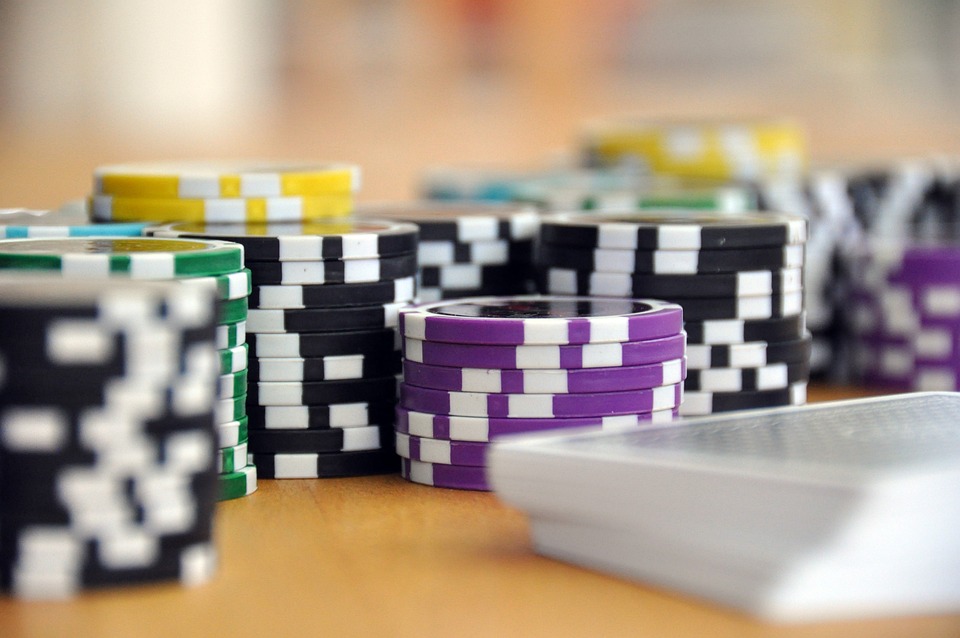
Poker playstyles: Tight and loose, passive and aggressive
In poker, “tight” and “loose” refer to the number of hands a person plays. A tight player plays few hands, sticking to premium ones like AA and AK. A loose player plays a lot of hands and is more willing to play ones without guaranteed value. Passive and aggressive describe how a person plays their hands. Passive players prefer to check and call, while aggressive players are not afraid to bet and raise. The four main poker playstyles are created from combinations of tight/loose and passive/aggressive. They are tight-passive, loose-passive, tight-aggressive, and loose-aggressive.
Tight-passive: An overview
In poker, the tight-passive playstyle is characterized by its cautious approach. Players who adopt this style typically only play a small number of hands and are quick to fold if they do not have a strong hand. They also tend to check or call rather than bet or raise, which keeps the pot size small. Many beginners resort to this style because they fear confrontation, which brings problems. Tight-passive players often get nicknamed rocks because of their rigid playstyle of doing nothing until they get a solid hand.
Loose-passive: An overview
The loose-passive playstyle in poker is characterized by a low frequency of betting and raising combined with a high frequency of calling. While they play many hands, they are unwilling to try and bluff, instead calling even when the odds of their hand improving are terrible. Many beginners also adopt this playstyle, as they feel that betting could be a waste of money but still want to continue with their hands. Loose-passive players are often nicknamed calling stations because of said overreliance on calling.
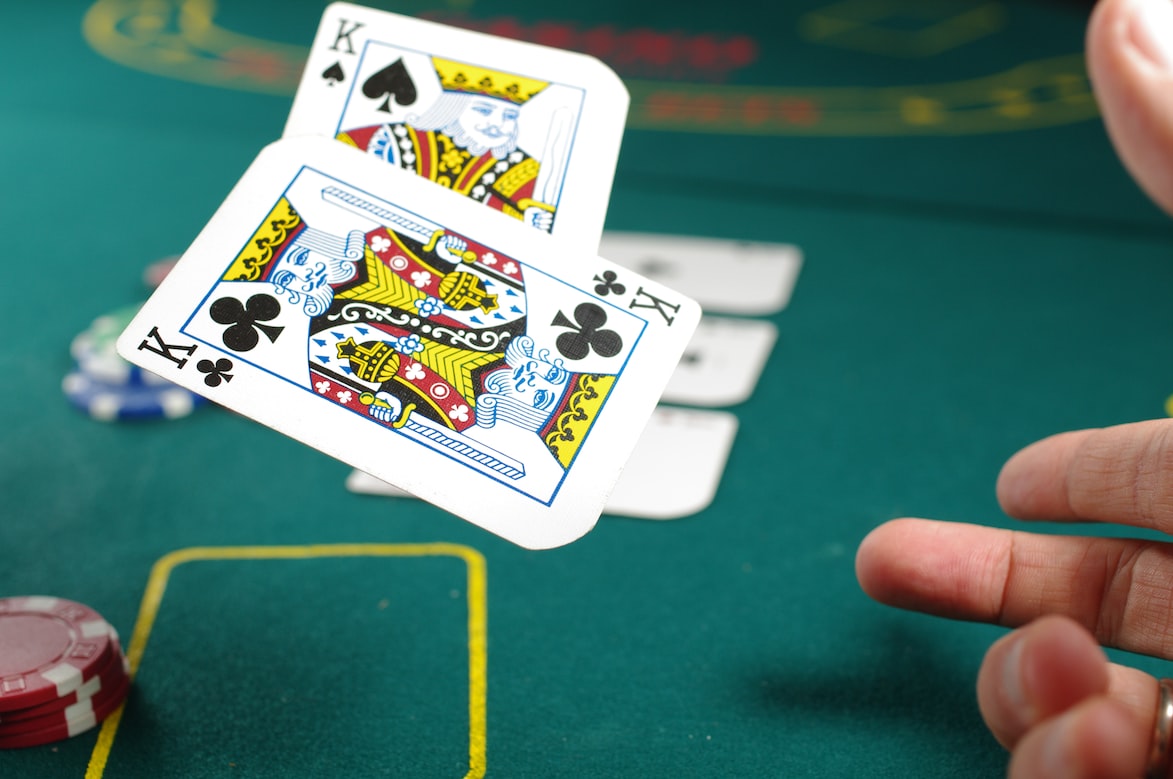
Tight-passive flaws
Any experienced poker player knows that the tight-passive playstyle has its flaws. First, players who adopt this strategy can be easily bluffed. Their starting hand selection means skilled players will. Second, their predictable nature makes it easy for opponents to deny them profit. Players effectively telegraph their hands to their opponents by playing tightly and passively. As a result, skilled opponents can easily exploit their weaknesses and take their chips. Finally, the nature of the tight-passive playstyle means that players aren’t maximizing their potential profits. While the tight-passive playstyle sounds decent on paper, its predictable nature makes it difficult for players to win big pots.
Loose-passive flaws
While the loose-passive playstyle can sometimes work in very low-stakes games, it is generally a significant mistake in anything more serious. The reason for this is that the blinds eaten up by playing so many hands quickly add up, and unless you are constantly winning big pots, it is challenging to make up for these losses. Furthermore, by playing so many hands, you are likely to run into situations where you are outmatched by players who are more aggressive or who simply have better cards. As a result, if you want to be successful in poker, adopting a more tight-aggressive or loose-aggressive approach is essential.
Why is being passive bad?
As you may have noticed, both the tight and loose-passive playstyles have many flaws. Being passive in poker is generally a bad idea for several reasons. For one, it can lead to missed opportunities. If you’re not actively betting or raising, you’re not giving yourself a chance to win pots without a good hand. Being passive can also make you an easy target for more aggressive players. If you’re not putting any pressure on your opponents, they can easily outplay you by betting and raising when they have strong hands and taking down pots that you could have won. Finally, passive play can simply be boring. Poker is supposed to be a fun and exciting game, but it might not be enjoyable if you’re just calling and checking all the time. So if you want to be a successful poker player, you must be willing to take risks and be more aggressive. Otherwise, you’ll likely find yourself stuck in the middle of the pack with little chance of winning.

Where to play online poker
We hope this article taught you about one of the most critical unwritten {{Texas Holdem rules}}: You must be aggressive. The next time you sit down at the table, keep these tips in mind and sign up for an account at GGPoker, the world’s largest poker room. With a wide variety of poker games and formats, you will surely find plenty of competition (and fun) at GGPoker.
The post Texas Holdem for Beginners: The Two Passive Styles appeared first on Championnat-De-Poker.
]]>The post Online Poker: How to Play and Win on the Internet appeared first on Championnat-De-Poker.
]]>
What is online poker, and how does it work?
Poker games have been around for centuries. They were once only played in physical casinos, but now you can also play them online. Many websites offer poker games, some of which are free to play. To play online poker, you first must create an account with a poker site. Once you have done this, you can login and start playing. You only need a computer and an internet connection to play online poker. You can even play on your mobile phone if you want to. Online poker is a great way to improve your poker skills, and it can also be quite lucrative if you are good at it.
The benefits of online poker compared to physical poker
Over the past few years, online poker has become the most popular way to play poker, with over 100 million players worldwide. That is primarily due to its many advantages over traditional physical poker. For one thing, online poker is much more convenient than playing at a brick-and-mortar casino. Players can log in and play from anywhere in the world, at any time of day or night. In addition, online poker casinos offer a wider variety of games and betting options than most physical casinos. It also allows you to use poker tracking software, which analyzes your games to find areas you can improve. The software also does the same for your opponents, providing helpful information and statistics you can use to gauge their play style. Best of all, many online casinos offer bonuses and promotions to increase players’ winnings. So whether you’re a seasoned pro or a first-time player, online poker offers a lot of things you cannot get at a physical casino.
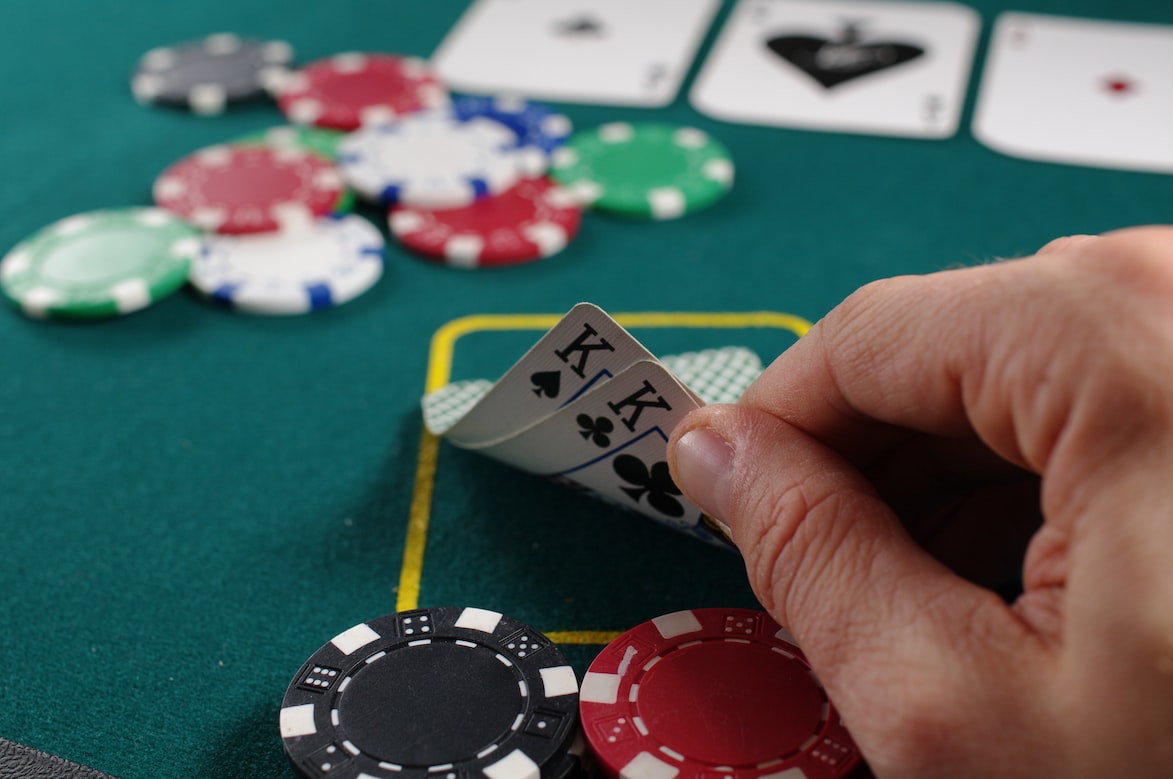
How to choose the best online poker room for you
With the hundreds of online poker rooms to choose from, it can be tough to know where to start. You first need to consider what stakes you want to play at. If you’re a high roller, you’ll want to look for a room that offers big pots and high limits. On the other hand, if you’re just starting, you may want to stick to low-stakes games. Once you’ve decided on the stakes, you need to decide what type of poker you want. Texas Hold’em is the most popular game, but many other variants are available, including Omaha and Short Deck. Finally, take a look at the website itself. Is it easy to navigate? Does it have all the features you need? Is it available in your region? Once you’ve considered all of these factors, you should be able to find the perfect online poker room for your needs.
Why you need a good strategy to succeed in poker
Anyone who has ever played poker knows that luck plays a role in the game. However, skilled players know that having a solid and consistent strategy is key to success. A successful poker player must be able to read their opponents, identify tells, and make calculated bets. They also need to maintain their composure in the face of bad beats and bad luck. Over time, a skilled player can minimize the role of luck in the game and emerge as a consistent winner. While there is no guarantee of success in poker, it is clear that skill plays a much more significant role than luck. Players who can develop and stick to a winning strategy will give themselves the best chance of coming out on top.
Things to keep in mind while playing
If you’re new to online poker, you should keep a few things in mind to succeed. First and foremost is bankroll management. It’s important to only play with money you can afford to lose and always to be aware of the amount of money in your bankroll. Many players mistake chasing losses, but this is a surefire way to go broke. Another thing to keep in mind is table selection. It’s essential to find tables where you’re comfortable playing and where the level of competition is appropriate for your skill level. Finally, remember that online poker is a different game than live poker. The pace is faster, and there are more hands dealt per hour. As a result, it’s crucial to be able to adjust your strategy on the fly. If you keep these things in mind, you’ll be well on becoming a successful online poker player.
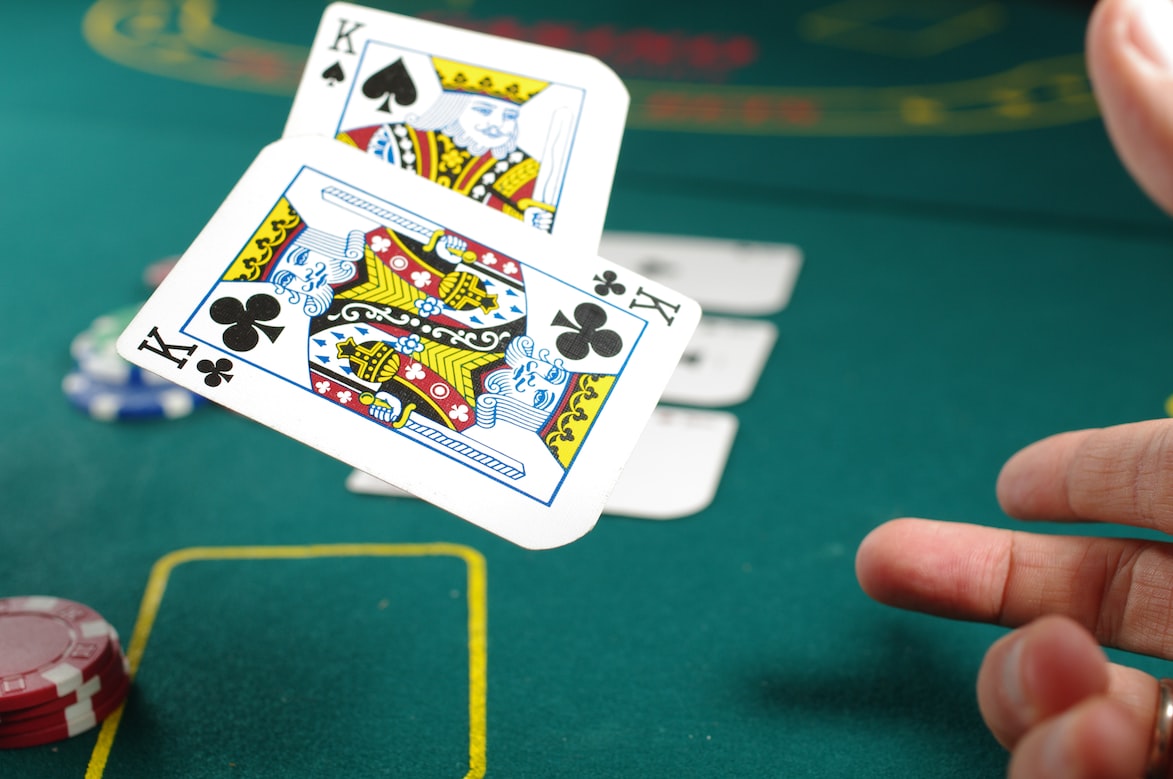
Where to practice
We hope this article taught you how to play poker online. Whether you’re a beginner or an experienced player, you can take steps to improve your chances of winning online poker games. By following the tips in this article and signing up with GGPoker, the world’s largest poker room, you’ll become a successful online poker player.
The post Online Poker: How to Play and Win on the Internet appeared first on Championnat-De-Poker.
]]>